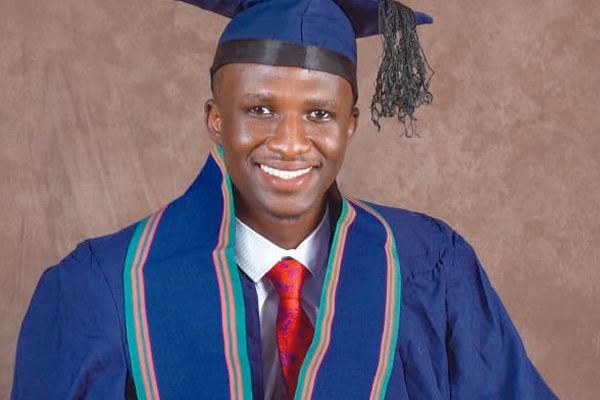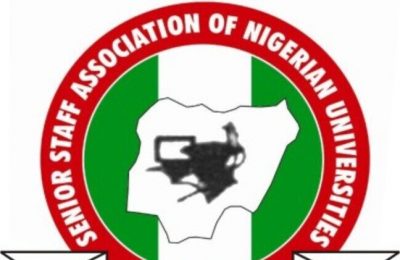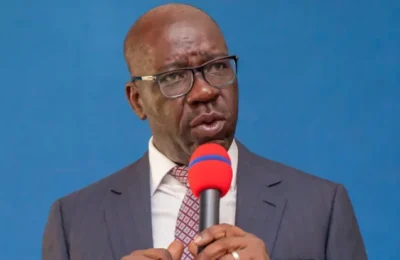
Ibrahim Adetayo Lawal graduated from the Department of Civil Engineering, University of Ibadan, for the 2022/2023 academic session, with a Cumulative Grade Point Average (CGPA) of 3.62 on a scale of 4.00. He is passionate about innovative water resources/sanitation and waste management research. In this interview by Kingsley Alumona, he speaks about his academic journey, his passion for the environment, waste management in Ibadan, among others.
What influenced you to study civil engineering? If not civil engineering, what course would you have studied?

I hail from a rural environment in the Ogun-Waterside area, a riverine community in Ogun State, with limited resources and opportunities. Despite the abundance of water in my community, access to clean water for drinking and domestic use was challenging due to inappropriate, inadequate, and degraded water infrastructures. Pollution from agricultural activities and excessive fish harvesting were also a challenge.
This influenced my decision to study civil engineering at the University of Ibadan, where I specialised in water, environmental, and public health engineering in my final year to create solutions to pressing water resources management issues in Africa and beyond.
What was your experience like studying at the University of Ibadan? And how would you describe the practical and technical aspects of your course in UI?
Studying at the University of Ibadan was a transformative and enriching experience that profoundly shaped my academic and professional trajectory. The journey was marked by academic rigour, supportive communities, meaningful research opportunities, extracurricular involvement, and personal growth.
The practical component of the course was equally robust. Laboratory sessions and fieldwork were integral parts of the curriculum, allowing us to apply theoretical concepts in real-world scenarios.
To make a First Class is not easy. How did you do it? Any template you could recommend?
Yes, it was not easy. However, I’ve always seen education as a powerful tool to transform the world. So, it motivated me to go for nothing but the best possible grade. I also provided one-on-one or small group tutorials to students within and outside my department. I also assisted my colleagues with understanding course materials, clarifying concepts, and offering guidance on assignments. This made it easy for me to study comprehensively as I had to prepare whatever I would be teaching.
What was the title of your final-year project and what were the major findings from it?
During one of my studies on water resources management, I discovered that approximately one-third of the world’s global population depends on groundwater for drinking water. Meanwhile, urbanisation, agricultural practices industrial activities, and climate change all pose significant threats to groundwater quality. Contaminants such as toxic metals, hydrocarbons, trace organic contaminants, pesticides, nanoparticles, microplastics, and other emerging contaminants are a threat to human health, ecological services, and sustainable socioeconomic development.
To contribute to innovative research on this pressing global challenge, I carried out my undergraduate thesis titled ‘Assessment of the Impact of Oyo State Refuse Landfill Dumpsite on Groundwater Quality in Awotan, Ibadan, Oyo State, Nigeria’ under the supervision of Professor Akinwale Coker.
This project aimed at identifying the physical, chemical, and bacteriological characteristics of water samples collected from wells in the study region. Findings from this investigation reveal that the dumpsite has caused a reduction in the pH values of Awotan’s groundwater, with a higher turbidity level indicating the presence of suspended particles associated with dumpsite pollution. Higher chloride and nitrate levels were also detected in samples closer to the dump site. All samples had total coliform and E. coli counts above acceptable levels, indicating faecal contamination and the presence of dangerous microorganisms.
Recommendations from this project are currently being prepared to be sent to the Oyo State government and NGOs such as WaterAid Nigeria for implementation and fabrication of policies. In addition, the results and experience from this research motivate me to continue to an advanced level to ensure the sustainability of groundwater resources and quality.
Ibadan is increasingly becoming a dirty city, with flood and drainage problems caused majorly by indiscriminate waste disposal. How would you advise the Oyo State government on how to innovatively address these challenges?
I would disagree with the use of “increasingly” here. Ibadan is known for the improper disposal and management of waste by its residents. However, through the concerted efforts of government agencies, NGOs, academia, and private individuals, Ibadan is now making progress with waste management. For example, I served as activities coordinator at the EcoVanguard Club-UI, and I organised several cleanup activities, as well as seminars to sensitise the public on proper waste disposal and recycling.
On flooding, After the August 2011 flood in Ibadan, the city gained attention on how to avoid such from reoccurring, this birthed the Ibadan Urban Flood Management Project development (IUFMP), which aims to create a robust flood risk management system in Ibadan. I will advise the Oyo State government to enforce approval from the town planning service before people build structures so that structures won’t be erected on water channels.
Do you agree that waste is wealth? If you do, with all the various kinds of waste dotting some towns in Oyo State, how can individuals or the government convert them into sustainable investments?
Yes, I agree that waste is wealth. There are many startups in Ibadan working effectively on converting waste to wealth — startups such as Planet 3R, which is being led by Adejoke Lasisi. She is actively using her weaving skills to convert textile and plastic waste into innovative products. Additionally, Jumoke Olowookere leads the African Creative Sustainable Hub where they convert waste to wealth by waste upcycling.
There are many opportunities and sustainable investments in this aspect of converting waste to wealth in Ibadan. I believe the government needs to support them by giving grants and other forms of support to individuals investing in this industry.
Virtually everywhere in Nigeria, there are quack civil and building engineers constructing substandard roads and buildings, many of them collapsing before completion. What are professional unions of civil engineers doing to checkmate these quacks and ensure quality construction services to Nigerians?
The Nigerian Society of Engineers (NSE) and the Council for the Regulation of Engineering in Nigeria (COREN) are actively combating quack engineers and ensuring quality construction services. These unions also run public awareness campaigns, uphold ethical standards, collaborate with government agencies, and contribute to policy development.
There is Awba Dam on the UI campus. As a civil engineer with a passion for hydro and environmental practice, how do you think that dam could be economically useful to UI?
As a student at the University of Ibadan, Awba Dam was one of my favourite relaxation spots on Campus. I enjoyed the serenity that comes with it in the later part of the day. It used to serve as a venue for picnics in my 100 level.
I believe the place should be developed back to serve as a recreational area. It can be harnessed for hydropower generation, reducing energy costs. It can also be used for irrigation to support agricultural projects, enhance food security, and research outputs.
Now you have graduated and briefly working, how are you bridging the gap between the theory you learnt in school and field practice? In this regard, do you think your university did enough in terms of practicals?
A few months towards the completion of my undergraduate programme, I applied to several civil engineering firms to bridge the gap between theory and field practice, and to occupy myself during the time of graduation and when I will be going for NYSC. I received offers from several civil engineering firms, but I chose Konsadem Associates Ltd because of its stellar reputation and its specialisation in water and environmental engineering, which align perfectly with my career aspirations to uncover ground-breaking insights, devise creative solutions for pressing water, environmental, and public health engineering challenges.
As a graduate engineering trainee at Konsadem Associate Ltd, I’ve had the incredible opportunity to work alongside seasoned engineers on impactful projects, as well as receive training to cover the gaps in my educational training.
Meanwhile, the University of Ibadan tried in terms of practicals. Maybe, they can always do better.
In the course of your studies, what were the situations you think your school or the Federal Government could improve on to make life and schooling comfortable for students and staff?
I think the Federal Government should increase funds allocation to universities, particularly to aid research and development.
What were the major challenges you faced during your studies and how did you overcome them?
I encountered numerous challenges during this period. Despite these challenges, my determination and resilience allowed me to overcome them and continue working toward my goals.
For example, in my second year, my mental health suffered due to the absence of emotional and financial support. I felt alone and overwhelmed, and my grades deteriorated. But then, I knew I had to take charge of the situation. I went out of my way to find and associate with a group of bright students who shared similar goals with me in school. I got the support and direction I needed from this encouraging network to get through this challenging time in my academic career.
During that dark period, I also won the Federal Government of Nigeria Undergraduate Scholarship that recognised my academic excellence, potential, and unwavering commitment and supported my university education with funding.
What is your advice to students who are aspiring to achieve the kind of academic feat you achieved?
My advice to students aspiring to achieve academic excellence is to stay focused and embrace challenges. Build a strong support network of peers, mentors, and professors who can guide and encourage you.
Don’t be afraid to ask for help when needed.
ALSO READ: JUST IN: Oba Olakulehin gets Staff of Office as 43rd Olubadan







